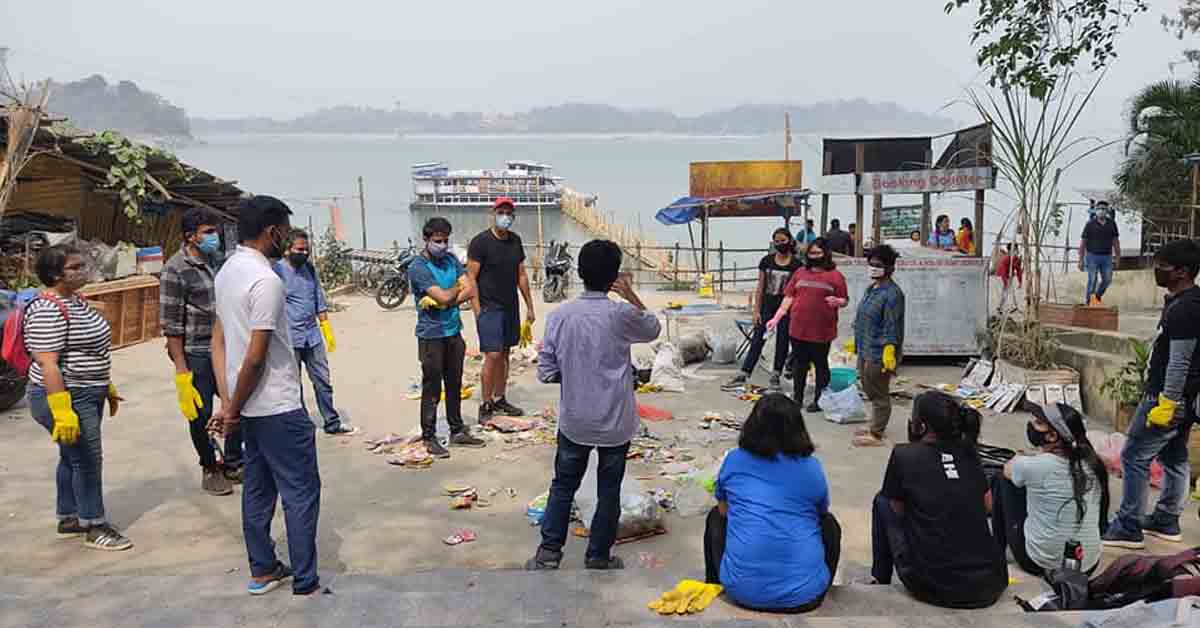
The Brahmaputra river is now the 6th most plastic polluted stretch of the water body as per UN reports. It's high time to realise that the waste we generate is our responsibility, else our future of polluted dumpsites and trashed water bodies is really grim
When youngsters think and determine, then magic happens. If you don't believe me then visit the Brahmaputra river bank near Uzanbazar market near Vivekananda Kendra every Sunday morning at around 9 am, you will find a group of youngsters cleaning up the bank and collecting and segregating waste. Named The Midway Journey, the journey of this initiative began a couple of years back with the basic idea to generate awareness on the issue of waste reduction and waste management.
The seven-member core team of The Midway Journey is Abhinav Dilip, Neelakshi Mour, Aveepsa Gogoi, Ashadeep Baruah, Shivani Goyal, Alifa Zibrani, and Shirshendu Sekhar Das.
"Mismanagement of solid waste is responsible for approximately 4 per cent of global greenhouse gas emissions and it's high time that we start taking concrete actions towards solving this crisis," says Shirshendu.
The Journey
"My journey began on June 5, 2018, when I was invited to give a talk on Plastic Pollution at Shemford Futuristic School in Guwahati," shares Shirshendu while saying as to why the initiative was named The Midway Journey.
"While preparing for the talk, I came across a video on YouTube that showed the death of innumerable albatross birds in the Midway islands," he added.
"The birds died after consuming plastic that was littered irresponsibly by us. So, I wanted to start this movement to inform the common public about the harmful impacts of plastic and hence named it as The Midway Journey," he further said.
Shirshendu did his Masters in Physics and then went to pursue a project in the field of Astrophysics at Shanghai in China and he was simultaneously doing some research work at Gauhati University in the same field.
"It was during this time that I got the chance to give the talk on plastic pollution and Looking at the grand scale of pollution due to our irresponsible behaviour of both production and consumption, I felt the need to take action instead of just being a mute spectator. This is how The Midway Journey happened," he further added.
Most of the team members came together during the regular Sunday cleanup drives at Uzanbazar river bank.
Among the members, Abhinav and Neelakshi are architects, Aveepsa did her post-graduation from TISS in Guwahati and is now working with Kudumashree NRO.
Ashadeep and Shivani have completed their graduation while Alifa is pursuing her graduation.
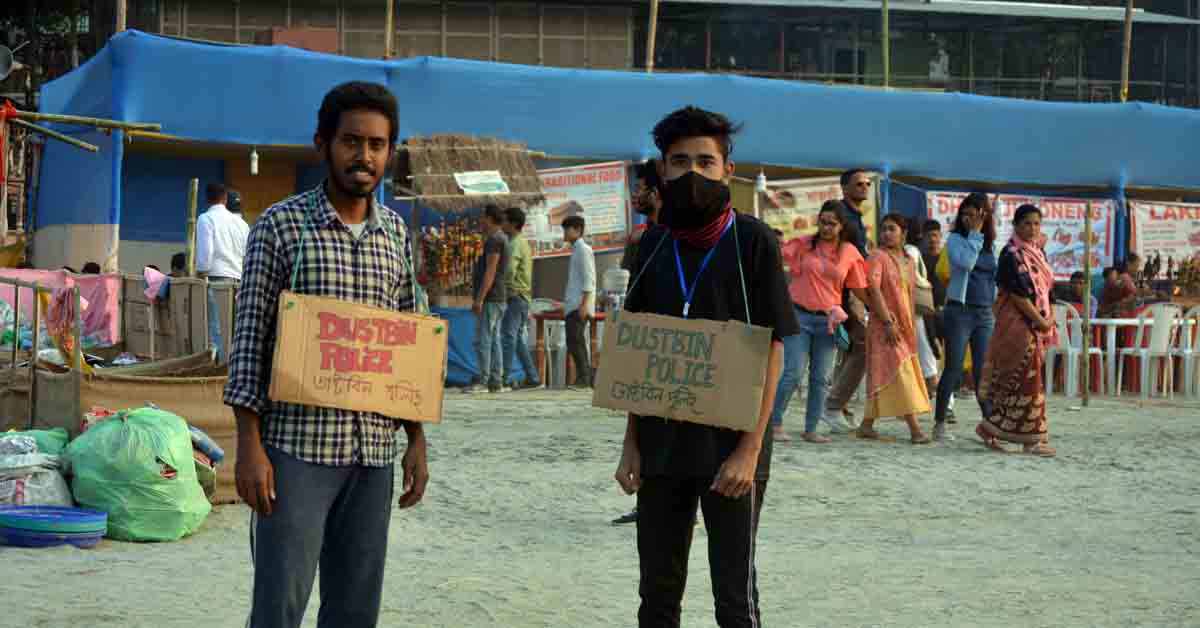
Shirshendu (left) and a volunteer at Jeevan Kite River Festival 2021
Projects Undertaken So Far
Challenges Faced
"As a team, we have faced various challenges in this field," Shirshendu said when he was asked about the challenges they have faced so far.
"Financial stability is a major concern as we mostly have been putting money from our pockets to run this movement," he added.
"We hardly get any donation. Also, there is a lack of intent of our urban local body to bring any significant change in the situation of waste management," he bemoans.
"In the recently Jeevan Kite River Festival this year, the municipality refused to give us dustbins to make the event zero waste. Being short of funds, we were left with no other option but to buy our dustbins to manage the waste of the festival," he further added.
"We have been cleaning the Uzanbazar riverbank every Sunday since 2019 but even now there is little participation of the local public," he added
Dealing With Queer Looks Initially
Even though the project is quite young and the idea new, the team, however, did not encounter any curious and queer looks when they began, mainly due to the Swachh Bharat Abhiyan narrative- which had already made cleanups a bit popular.
"So whenever I would clean the riverbank or any area, mostly the general comments would be 'Swatchch Bharat Chal Raha Hai'," Shirshendu adds.
"In my locality, when I tried cleaning the by-lanes along with a friend, few people had complained that why this PhD guy is doing such dirty work," he said.
"In many instances, people have thrown garbage right in front of us while cleaning and when I did confront, I was hurled with abuses," he further said.
"I do get disturbed by these at times. After all, we aren't paid to clean the city, we do it out of passion. But then the cause is always the priority and with time, everything else simply becomes the background noise," he added.
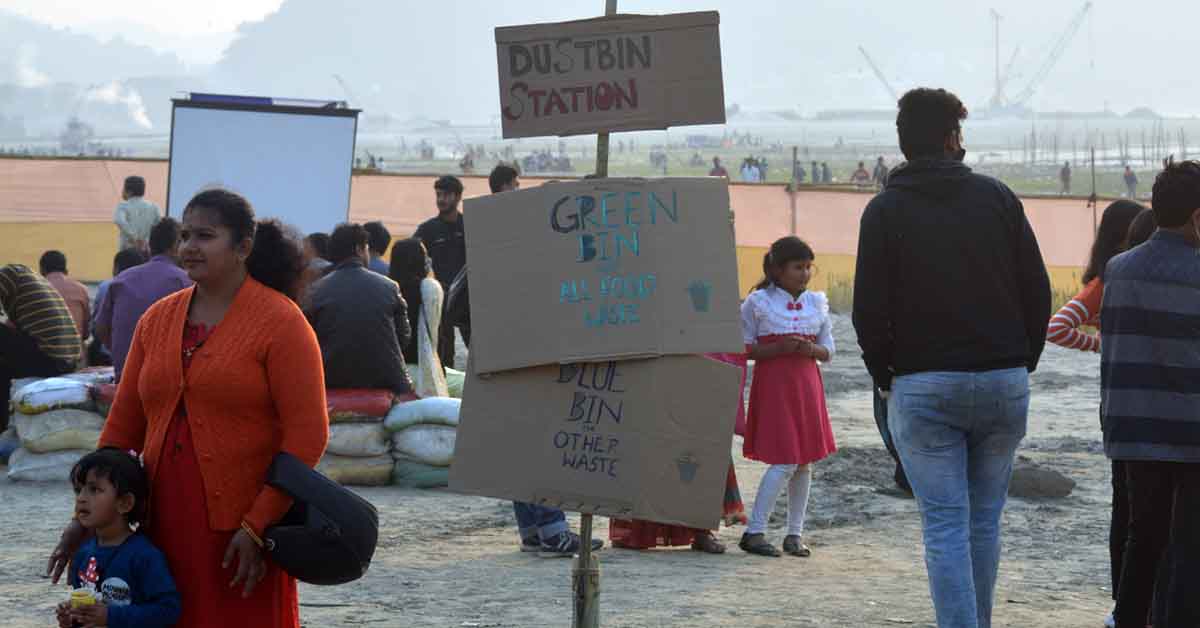
At Jeevan Kite River Festival 2021
Inspiration Behind
Those who are associated with cleanliness drives or read about such initiatives undertaken across the world, by now you must have realised who inspired the young physics student to embark on this rather "difficult" journey?
Well, you guess it right. Like many others, Shirshendu has also been inspired by Afroz Shah- a Mumbai lawyer who has been cleaning the beaches of Mumbai since 2015 and cleaned over 9 million pieces of garbage from the beaches.
Shah's determination and grit to continue despite receiving threats by goons inspired Shirshendu to start the Brahmaputra riverbank cleanup drive in Guwahati.
"Apart from it, I believe the death of so many species, especially the birds of Midway Islands, motivated and inspired me the most to act on the ground to tackle this menace," he added.
Key Focus Areas
The main focus of The Midway Journey initiative is on waste reduction.
"As a civilisation, we do not have the technology to manage the humongous quantity of waste that we are generating every single day. We design activities to shift people's habits to practises of reusing things and refusing single-use items as much as possible," Shirshendu informed.
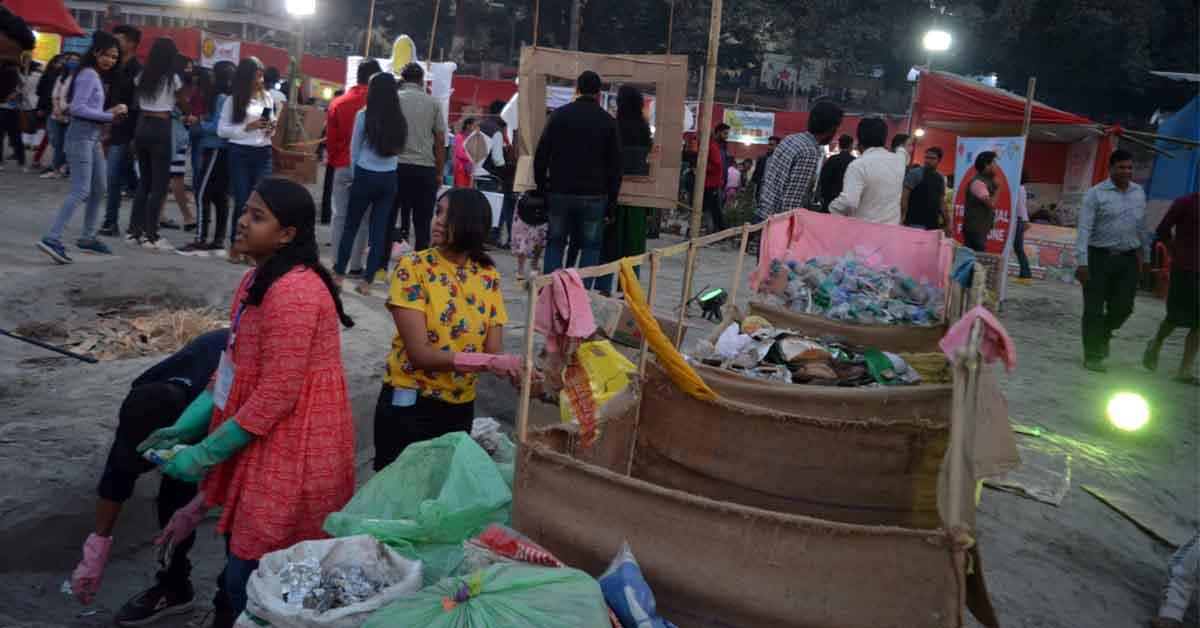
At Jeevan Kite River Festival 2021
Plans Of Expansion
Even as the clean-up drive is being appreciated by a small section of denizens and people from other parts of the state and the region are taking a note of it, Shirshendu and his team, however, has no immediate plans to expand it outside Guwahati but chances are definitely on the cards.
"As of now, we are working extensively in Guwahati and we want to demonstrate our ideas through various platforms in the city. After that we will look forward to expanding to other parts of the state or region," he said.
"We are already working in capacity building of other movements/organisations who are willing to work on waste management in other parts of the region," he added.
Future Project
"We are working to make Uzanbazar a model ward for waste management. We are fortunate to have the guidance of renowned waste management expert Sanjay Gupta in this project," said Shirshendu.
"We are also planning to expand the Power of 300 projects to at least 10 schools of the city so that we collect a good chunk of dry waste that we shall send for recycling," he added.
Message The Story Mug Readers
"The Brahmaputra river is now the 6th most plastic polluted stretch of the water body as per UN reports. It's high time to realise that the waste we generate is our responsibility, else our future of polluted dumpsites and trashed water bodies is really grim," Shirshendu said.
According to him, Waste Management is not rocket science and it can be described in the following three steps:
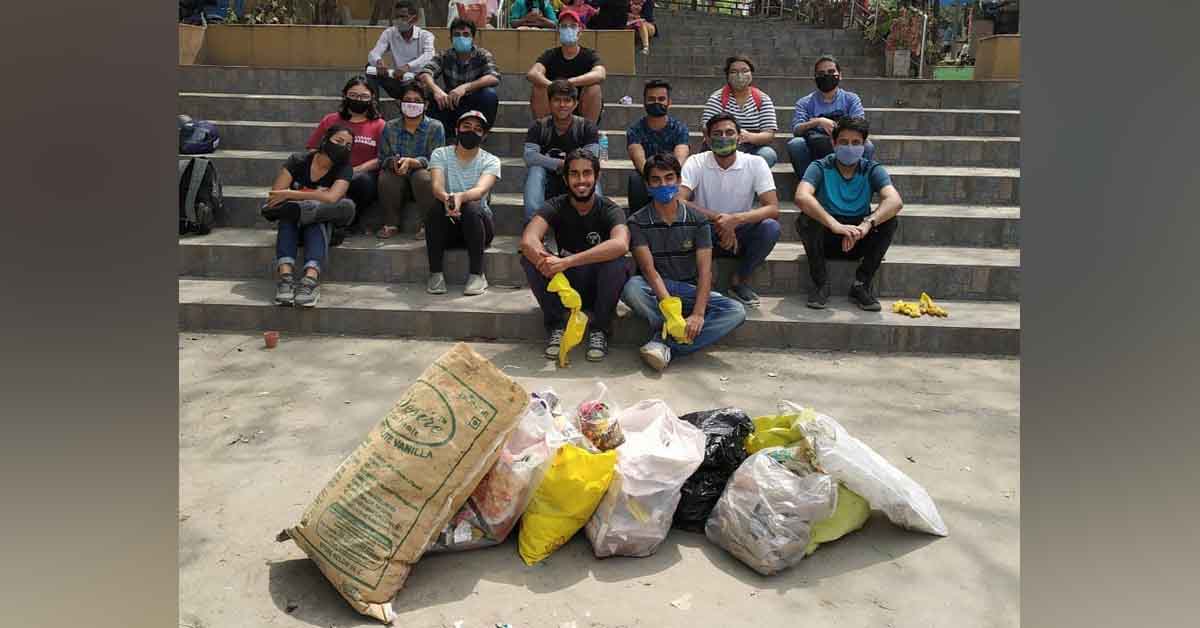
Happy faces after a Sunday clean-up drive. Courtesy: The Midway Journey Facebook page
Partha Prawal (Goswami) is a Guwahati-based journalist who loves to write about entertainment, sports, and social and civic issues among others. He is also the author of the book 'Autobiography Of A Paedophile'.